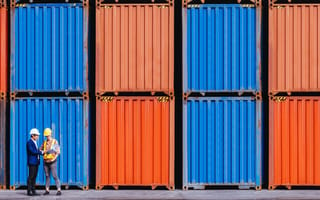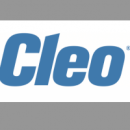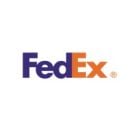Supply chain companies have had their work cut out for them in recent years. Between the infamous toilet paper shortage of 2020 and the ongoing grain crisis resulting from Russia’s war in Ukraine, the intricate web of companies, people and processes involved in moving goods around the world has somehow become even more complex.
Top Supply Chain Companies
- Amazon
- Walmart
- Blue Yonder
- C.H. Robinson
- DHL
- Locus Robotics
- FedEx
- Echo Global Logistics
Supply chain companies help optimize all the activities involved in procuring raw materials and then making those into products, as well as the logistics of storing, selling and shipping those products to consumers — all of which is done using technology like artificial intelligence, IoT, blockchain and robots. All told, the sector was valued at $27 billion in 2022 by market research firm Valuates Reports, and is projected to reach $75 billion within the decade.
Here’s just a handful of top supply chain companies at the forefront of this burgeoning industry.
Top Supply Chain Companies
Bringg offers a delivery management platform for businesses that enables order fulfillment and package delivery throughout the delivery process, from logistics systems technology to the final customer. It works with materials providers, customers and sellers to enable efficient supply chain management through tech solutions for dispatch, routing, last-mile service, third-party delivery and delivery hubs. The company also facilitates business management of multiple fleets, inventory and notifications for drivers of urgent deliveries.
Logiwa’s cloud-based warehouse and inventory management software helps e-commerce, retail, wholesale and third-party logistics companies streamline warehouse operations. Its platform includes order management, inventory control, warehouse management, shipping coordination and analytics tools. Founded in 2017, Logiwa is based in Chicago, Illinois.
FourKites offers real-time tracking for fleet vehicles, ships and planes, keeping seamless digital tabs on goods across shipping modalities. The company works with shippers, carriers and logistics service providers as a supply chain integrity augmentation, which allows manufacturers to more accurately predict loss and damage while increasing customer confidence in ETAs for purchased goods.
Cleo specializes in solutions for streamlining API and EDI integration so that businesses can guarantee they’re able to fulfill their supply chain commitments. Its platform’s solutions cover quick and simple onboarding for trading partners, proactive error monitoring, automated integration processes and business flow visibility. Cleo says its technology supports more than 4,200 customers, giving them the capabilities to increase operational efficiency.
Amazon is among one of the largest supply chain companies in the world. The tech giant is perhaps best known for its e-commerce site, where it facilitates sales for millions of suppliers and third-party sellers, as well as its own products. It also runs its own network of fulfillment centers and distribution services, implementing extensive data analytics, warehouse robots and even delivery drones.
Walmart is another prominent figure in the supply chain industry, operating hundreds of high-tech distribution centers around the world. The company also sources a lot of products itself, including the produce it sells at its brick-and-mortar locations, in an effort to meet high-volume demands and keep costs down. And it invests heavily in blockchain technology to do so. Using the Hyperledger Fabric, Walmart built a traceability system to make its food supply chain process more transparent and reliable. It also uses blockchain technology to solve data discrepancies in its invoice and payments process for freight carriers (a common problem in the industry).
Bringing together data customers, suppliers, logistics partners and distribution channels — and combining that with AI and machine learning capabilities — E2open aims to help companies make smarter decisions about their supply chain. All of this complex information is then delivered to the company in a single view that breaks down demand, supply and their entire logistics ecosystem. The company operates in a variety of industries, including food and beverage, automotive and pharmaceutical.
Companies across the aerospace, fashion, automotive and food industries use Infor’s AI-powered supply chain applications to make more informed decisions about how they get their products to consumers. The company employs advanced algorithms to anticipate supply and demand patterns, and then offers a variety of solutions to help organizations better manage their warehouses and transportation network, as well as control their finances.
Blue Yonder uses machine learning, predictive analytics and generative AI to enable businesses to optimize and automate their supply chain operations, offering everything from demand forecasting to transportation management. Its services are used by more than 3,000 companies, including Best Buy, Pepsico and Campbell’s.
Ryder is a supply chain, transportation and fleet management company, offering a variety of tech solutions to help companies with their warehousing and distribution, freight brokerage, e-commerce fulfillment and last-mile delivery needs. It also offers full service leasing, rental and maintenance services for its trucks, all of which are equipped with IoT sensors for collecting performance data and GPS tracking. The same technology is used for its smart warehousing and e-commerce enablements.
C.H. Robinson is a third-party logistics company, meaning it can be contracted by retailers to handle all their fulfillment and shipping needs. It provides freight transportation and logistics, sourcing and warehousing services to thousands of companies around the world, handling about 20 million shipments annually, according to the company. Target, Whirlpool and Coca-Cola are just a few of the companies that use C.H. Robinson’s services.
Using blockchain technology, Sourcemap offers a way for companies to more diligently monitor their global entire supply chain — all the way down to the farms and mines where their raw materials originate — in a process the company calls “supply chain mapping.” This not only helps businesses run their supply chain more efficiently, but it also helps ensure they are compliant with due diligence requirements against things like forced labor and deforestation.
E-commerce businesses that don’t want to oversee their own warehouse management can turn to Shipbob, which runs a large network of fulfillment centers and offers express shipping capabilities. The company also uses predictive data and analytics to provide inventory management services, and can be easily integrated with platforms like Shopify, Wix and Squarespace to enable users to more easily import orders.
Shipping giant DHL is at the forefront of all things supply chain management, offering a wide range of services including e-commerce shipping and fulfillment offerings, nationwide parcel delivery and international express, road, air and ocean transport. The company also uses IoT-sensor-enabled trucks that gather data like weather, traffic and shipment information in order to make smarter scheduling and routing decisions. And it relies on blockchain technology to keep a digital ledger of shipments and monitor transactions.
Vorto aims to help businesses make their supply chains more economically and environmentally sustainable. The company’s automated supply chain management platform features a suite of products that flag inefficiencies and develop intuitive solutions using artificial intelligence. And it helps users streamline and automate their raw material sourcing, procurement and shipping processes.
XPO Logistics focuses on less-than-truckload shipping across North America, which are relatively small loads or quantities of freight. It also offers services in freight brokerage, intermodal and short distance logistics and last-mile distribution.
Overhaul’s SaaS platform allows shippers to connect their disparate data to get a better view of their supply chain and manage any risks along the way. By integrating data from IoT devices with contextual data overlays and multimodal visibility capabilities, the platform can make critical insights that trigger real-time corrective actions regarding everything from the temperature of a truck to the location a package goes to.
Used by major shipping companies like DHL and UPS, Locus Robotics makes autonomous mobile robots to optimize warehouse operations. Its Max bot, for example, can carry up to 3,000 pounds and is designed to transport pallets and other irregular loads. And its Origin bot uses LiDAR and computer vision technology to navigate, as well as eight cameras and sensors so it can maneuver alongside its human counterparts.
Arrive is a logistics broker, meaning it partners with a vast network of shippers and carriers to bring custom shipping solutions to businesses throughout the United States, including Home Depot and Samsung. Averaging around 4,000 loads shipped per day, the company offers an extensive suite of fleet options including small trucks, dry vans and temperature-controlled containers. The company also offers online portals for both shippers and carriers to help operate more efficiently.
Project44 focuses primarily on offering companies real-time visibility into their supply chain, beyond just basics like shipment tracking. Shippers and logistics companies use its cloud-based platform to continuously monitor things like purchase orders and stock keeping units to improve their inventory management, enabling more reliable and predictable deliveries. The company says it also supports all transportation modes and shipping types, including air, parcel, less-than-truckload, rail and intermodal.
6 River Systems focuses on warehouse productivity, combining advanced fulfillment algorithms with its autonomous mobile robot, Chuck. Chuck uses machine learning and AI to help its human co-workers do smaller tasks faster, and can carry up to 200 pounds of payload. The bot is a used tool for putting things away, picking, sorting and more.
When it comes to shipping, FedEx is a household name, handling some 16.5 million packages a day. It is also at the forefront of tech innovation in supply chain management, providing software solutions for things like warehouse and transportation management, as well as integrating blockchain technology into its chain of custody in an effort to improve trackability. And in 2021 the company began a partnership with driverless truck manufacturer Aurora to test out its fleet of autonomous 18-wheelers.
Cardinal Logistics is used by businesses of all sizes, offering various fleet outsourcing, transportation management, last-mile services and warehousing solutions. And it partners directly with every company it works with to develop and implement customized transportation solutions, including specialized equipment and handling, as well as integrated technology.
HAVI provides procurement, packing and temperature-controlled storage and delivery services specifically to businesses within the food service industry, from quick service restaurants to catering companies. The company’s platform is also designed to help these businesses make sense of their data so they can make more informed decisions about what to order and when, as well plan for contingencies like shifting supply and demand.
Using artificial intelligence, machine learning and advanced load matching algorithms, Echo Global Logistics gives shippers and carriers around the world a way to transport goods in a smarter, more connected way. Its platform gives users a full picture of their total transportation business, and provides real-time visibility into every facet of the shipment process. Echo also operates dozens of warehouses across the United States, each of which is capable of direct-to-consumer services and forward stocking.
Cencora works with pharmaceutical companies, and its offerings include medical supply chain and logistics solutions that support clinical trials and medication access for patients around the world. The company has thousands of employees working across its operations in more than four dozen countries.
Grainger offers a substantial catalog of maintenance and repair products for businesses, and its capabilities extend to inventory management. The company’s KeepStock solutions provide businesses with tools and expert support to ensure they have the important parts and equipment they need in supply.
MoLo Solutions offers truckload brokerage services to connect carriers to shippers, in order to deliver products across North America. The company was a Chicago start-up in 2017 and was acquired by ArcBest in 2021, backing it with supply chain solutions. It says it focuses on innovation, company culture and customer service.
Altana offers a “value chain management system,” a public-private collaborative network. This allows its customers to handle distribution and supply issues, including raw material origins and sale of products. The company boasts its sustainable, secure, efficient and resilient global value chains.
Coupa Software offers a platform powered by artificial intelligence that enables users to streamline management of direct and indirect spending. Its client companies range in size from small businesses to enterprise giants. The company says its platform can be used for supply chain and logistics.
Sysco LABS’ e-commerce development helps support an efficient supply chain for the foodservice industry. It builds and optimizes digital tools that simplify product discovery, delivery tracking, invoice management and other important tasks for Sysco customers, which include restaurants, schools and other businesses that prepare and sell food.
Frequently Asked Questions
What is the supply chain?
The supply chain is a series of connected steps and processes a product goes through to get to a consumer, from its creation to its delivery. It often entails a network of companies and people that are involved in obtaining the raw materials of the product, making and storing the product and then selling and distributing the product.
What is a supply chain company?
A supply chain company specializes in helping other companies manage and optimize their supply chain operations, providing a range of services to improve their efficiency, cost-effectiveness and productivity. These include inventory management, freight transportation, warehousing and more.
What is the largest supply chain company?
Amazon is one of the largest supply chain companies in the world. The company manages its entire distribution chain, from the millions of suppliers and sellers on its e-commerce site, to its many fulfillment centers, to its delivery network.
What is supply chain management?
Supply chain management is the handling of the production and distribution process of goods and services.






























